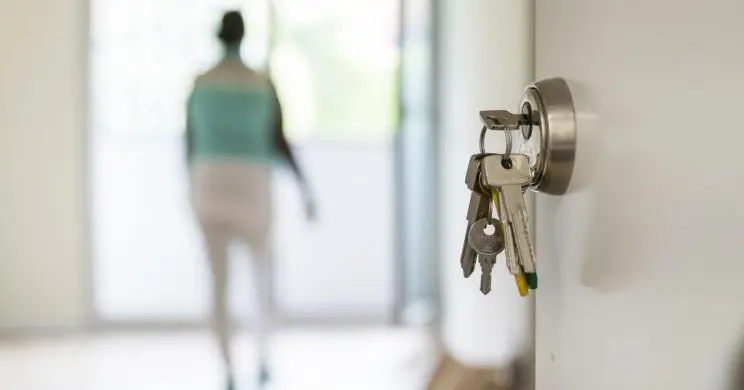Who pays for repairs on rental properties?
Who pays for repairs on rental properties. Living in a rented property often involves encountering instances of breakage, damage, or the desire to make modifications. Such situations can give rise to uncertainties about repair responsibilities, potentially leading to disputes between landlords and tenants. It is crucial to navigate these issues to maintain a harmonious landlord-tenant relationship.
To address these concerns, we aim to explain the obligations and rights of both parties involved in a lease. Furthermore, we will outline the responsibilities regarding repairs and renovations in a rented dwelling. This information aims to provide clarity and prevent potential disagreements between landlords and tenants.
Urban leasing law.
Who pays for repairs on rental properties. As a fundamental principle and a general norm, it is typically the responsibility of the landlord to cover the costs associated with necessary repairs essential for maintaining the habitability of the rented property. This obligation is outlined in Article 21.1 of the Urban Leasing Law (LAU), which states:
"The landlord is obligated to perform, without the right to increase the rent, all repairs necessary to keep the house in habitable conditions for the agreed-upon use, except when the deterioration in question is attributable to the lessee, as stipulated in Articles 1,563 and 1,564 of the Civil Code."
Conversely, the tenant is obliged, as outlined in Article 21.3, to promptly notify the lessor of the need for repairs, seeking to "provide the landlord with direct verification, by themselves or by designated technicians, of the state of the house," with the purpose of initiating appropriate measures. In certain urgent cases, where repairs are essential "to prevent imminent damage or serious discomfort," the lessee may proceed independently, always with the prerequisite "after communication to the lessor," who can subsequently demand reimbursement for the incurred expenses
What repairs should the tenant pay for?
As stipulated in the Urban Leasing Law, the responsibility for home repairs extends to the tenant in specific instances, with damages attributable to the lessee being one such exception, albeit not the sole one. Another exception is outlined in Article 21.4, stating that "small repairs necessitated by the ordinary wear and tear resulting from the normal use of the house shall be borne by the lessee." For instance:
- If a technician determines that the fault is a result of misuse, the tenant may be obligated to cover the associated repair costs.
- Repairs affecting items inside the house, such as a table or sofa, might fall under the tenant's responsibility, contingent on the circumstances leading to the damage.
- Items that are relatively new or durable are less prone to spontaneous breakage, making misuse by the tenant a potential cause for which they would be held accountable.
In such scenarios, if misuse is established, the tenant would be expected to bear the expenses incurred for the necessary repairs.
Working with real estate agents.
Working with real estate agents on the Costa del Sol
When looking for your dream property on the Costa del Sol, it's a good idea to work with a professional real estate agent who is familiar with the area and can help you navigate the local market. Here are a few things to keep in mind when working with real estate agents in Costa del Sol:
- Local Expertise: As an experienced real estate agent we have in-depth knowledge of the Costa del Sol area, including specific neighbourhoods, property types, and market trends.
- Property Search: Your real estate agent can help you identify properties that meet your specific criteria, such as location, size, amenities, and budget.
- Negotiation: A skilled real estate agent can assist in negotiating the best deal for you, helping you secure your dream property at a fair price.
- Legal Guidance: Your agent can provide valuable guidance on legal requirements, regulations, and paperwork involved in purchasing real estate in Costa del Sol.
By teaming up with a trusted real estate agent, you can streamline the process of finding and purchasing your ideal property in this beautiful region of Spain.
Viewing and inspecting properties in Costa del Sol
When viewing properties in Costa del Sol, make sure to inspect the facilities and amenities offered by each property. Check for any signs of wear and tear that may require maintenance. Take note of the location and accessibility to essential services such as grocery stores, medical facilities, and public transport. Additionally, assess the neighbourhood to ensure it aligns with your preferences in terms of ambiance and lifestyle. Keep in mind that documenting everything you observe during the property viewing will be helpful when making your final decision.
Conclusion and next steps
Now that you have a good understanding of the Costa del Sol real estate market, it's time to take the next steps to find your dream property. C2C Properties have experience in this area, as we can provide valuable insights and guide you through the buying/renting process. It's also important to finalize your budget and have your financing in place, whether through savings, a mortgage, or other means. Lastly, start narrowing down your property preferences, such as the type of property, location, and amenities you desire. With these steps in mind, you'll be well-prepared to begin your search for the perfect property on the Costa del Sol.

